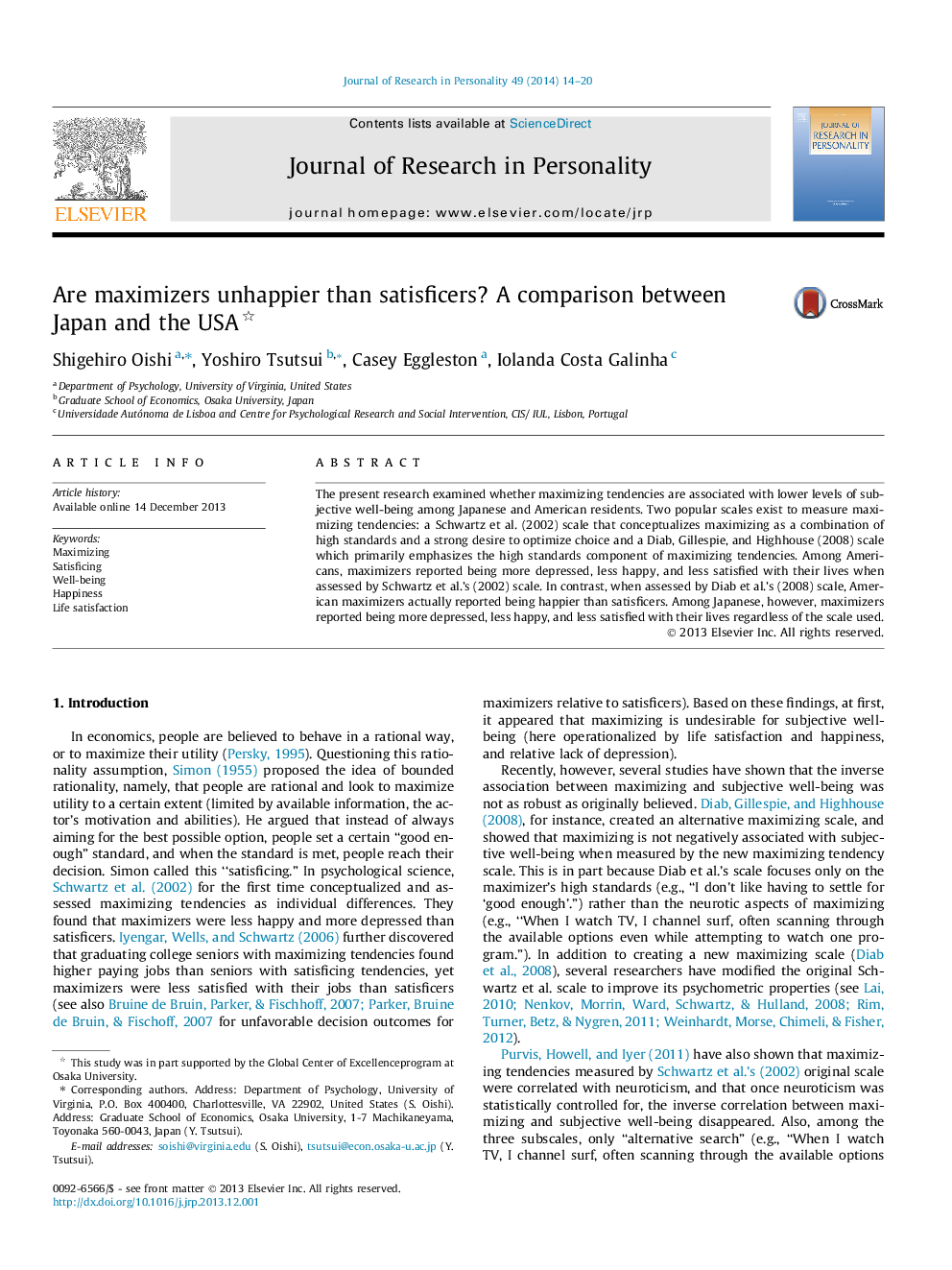| Article ID | Journal | Published Year | Pages | File Type |
|---|---|---|---|---|
| 951396 | Journal of Research in Personality | 2014 | 7 Pages |
•Report a cross-cultural study on maximizing and subjective well-being.•Use a nationally representative sample from Japan and the US.•Use two different maximizing scales.•Maximizing was consistently negatively associated with subjective well-being among Japanese.•Maximizing was negatively associated with SWB, only with Schwartz et al.’s (2002) scale in the US.
The present research examined whether maximizing tendencies are associated with lower levels of subjective well-being among Japanese and American residents. Two popular scales exist to measure maximizing tendencies: a Schwartz et al. (2002) scale that conceptualizes maximizing as a combination of high standards and a strong desire to optimize choice and a Diab, Gillespie, and Highhouse (2008) scale which primarily emphasizes the high standards component of maximizing tendencies. Among Americans, maximizers reported being more depressed, less happy, and less satisfied with their lives when assessed by Schwartz et al.’s (2002) scale. In contrast, when assessed by Diab et al.’s (2008) scale, American maximizers actually reported being happier than satisficers. Among Japanese, however, maximizers reported being more depressed, less happy, and less satisfied with their lives regardless of the scale used.
